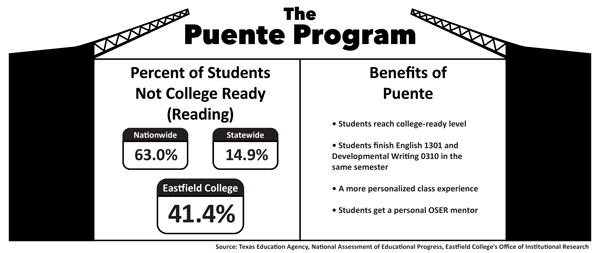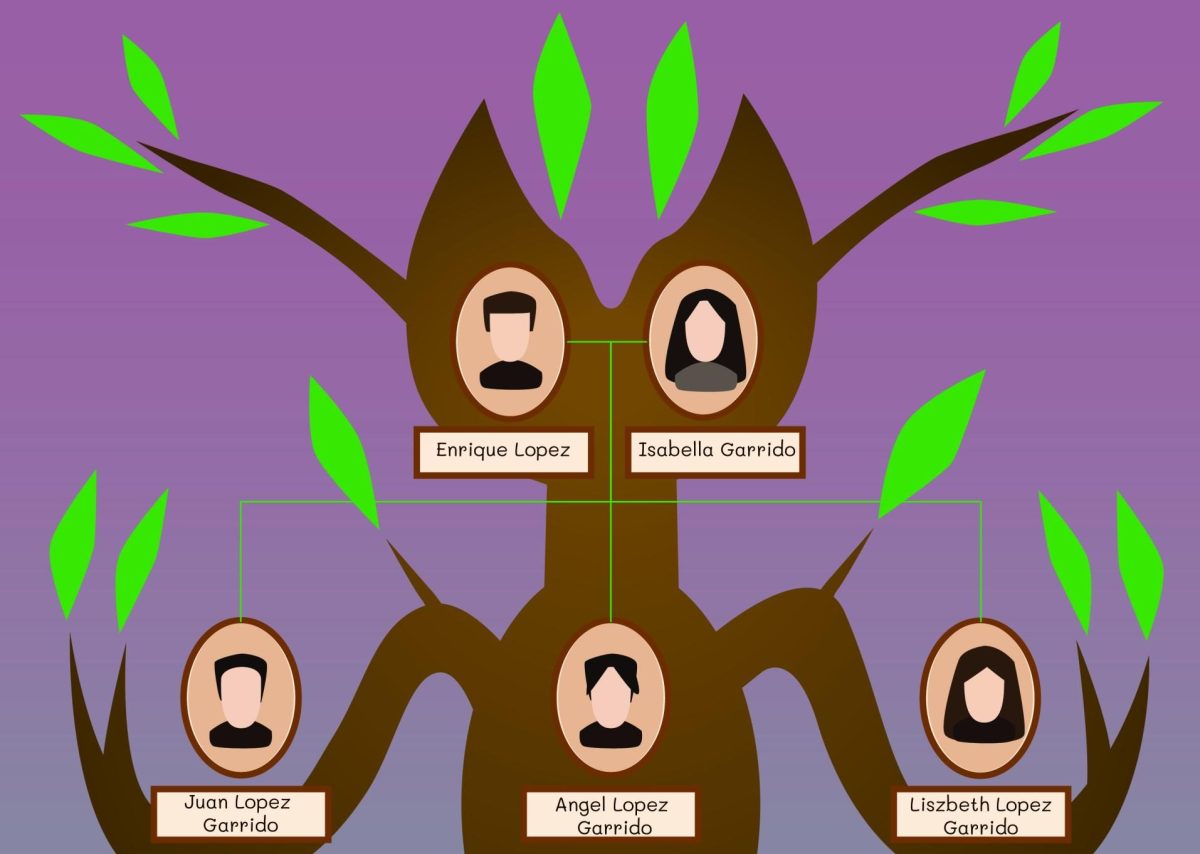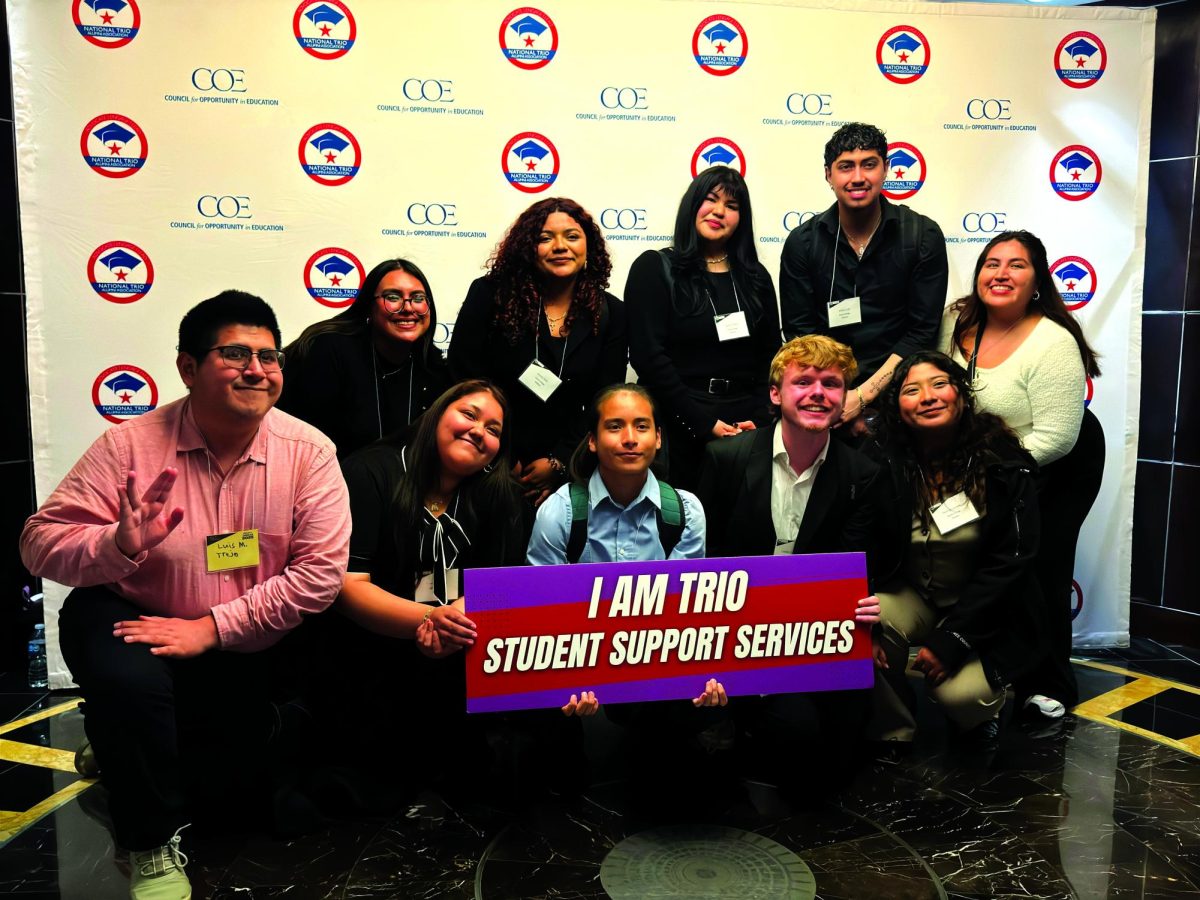
By KATRINA BOND
@KatBondETC
Eastfield’s Puente Project, which began this semester, is a new program designed to help students in developmental courses facing barriers to continuing and completing their education.
Every Eastfield applicant is required to take the Texas Standard Initiative test, which determines college readiness in math, reading and writing. If students do not pass the TSI, they must take developmental courses in their failing subjects. To ensure developmental students stay in college, Eastfield has now implemented the
Puente Project for the spring semester with plans to expand in Fall 2017.
The program enrolls Human Development and Developmental Integrated Reading and Writing students in specially designed, small classes. The students take the two developmental courses for eight weeks and then go directly into Learning Frameworks and English Composition 1 with the same professors. Smaller classes and mentors are included to meet individual students’ needs.
The Puente Project originated in Southern California in the 1980s and has since been implemented by colleges across the country. The program was originally designed to help Mexican-American students who learned English as a second language and were not yet college-ready.
“After examining culturally and socioeconomically what was going on, the idea was to create a different culture in the academic environment to be more immutable to the Latino/Latina culture,” English professor Amanda Preston said.
[READ MORE: Bathroom bill leaves transgender students in limbo]
Preston teaches the Developmental Integrated Reading and Writing and English 1301 courses as part of Puente.
“In a lot of ways, it makes sense because the Western and American education model is built on this 19th century Germanic style,” she said.
Preston believes traditional academic culture doesn’t cater to people of different cultural backgrounds. The program needed some tweaking to cater to Eastfield’s student demographic, she said.
“It’s not just a single cultural focus,” Preston said. “It’s including Latino/Latina, African-American, Native American, but also a number of other global cultures because that reflects our population in the area and also our student demographics.”
The classes are group-oriented, and the students are encouraged to get to know one another. Preston said students in her class get in small groups of three or four, which she calls their “familias,” to promote the idea that students should be more responsible for themselves and their classmates while showing them they are not alone in the classroom.
“Puente basically creates a community in the classroom, which is why it works around this idea called ‘familia,’ ” Preston said. “This makes college personal. The idea is if we can do that, then we’re more likely to be able to help students get through that hard part and also prevent them from turning in on themselves.”
Puente students are also given extra attention from their professors. Preston said if a student is absent in her class, she may contact them to see if she can help.
Additionally, students in the program receive in-class advising to assist them in continuing their college educations and keep them on track beyond the initial Puente courses.
[READ MORE: Revisions to advising aimed at personalizing experience]
Professors also encourage students to invite their families to “Noche de Familia” to better connect with the classroom and help them receive support from home.
Preston said the human development and learning framework classes are paired with English classes because English is the foundation of all other classes.
“The idea is we’re going to start them in this English class because a lot of turn-around happens there, especially when you have multilingual learners,” Preston said. “The Puente program prioritizes and becomes aware of the needs of students, and the fact that English class is one of those classes that a lot of people enroll in and drop, or enroll in and don’t finish… The goal is to reduce the amount of recycling and increase matriculation by making sure students are not lost in the process.”
Ten students are enrolled in the program this semester. When students return from spring break on March 20, they will have completed their developmental classes and will begin EDUC 1300 and ENGL 1301.
“We intentionally started with a small cohort,” said Robert Harper, dean of the Office of Student Engagement and Retention. Harper said Puente Project coordinators wanted to have a “pilot run” in the Spring 2017 semester to gauge exactly how all the pieces would fit together for the future. “Then in the fall, we’re going to scale up the Puente Project.”
Business major Eli Bautista has found success with the Puente Project.
“They actually help you a lot, and not just with English, but with my other classes, too,” Bautista said. “I’d probably be more behind [without Puente].”
— Emily Martinez contributed to this report
https://eastfieldnews.com/2017/03/07/phase-addresses-mental-health/







